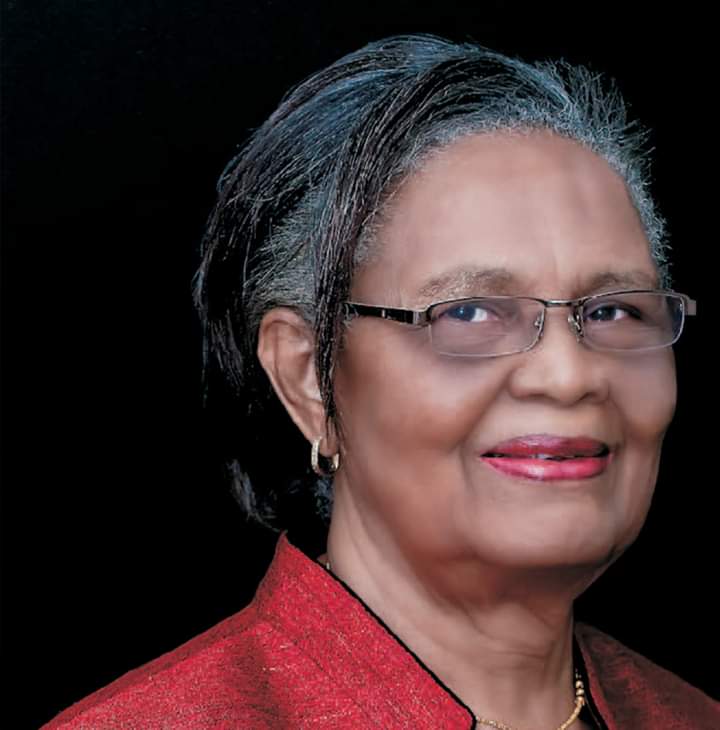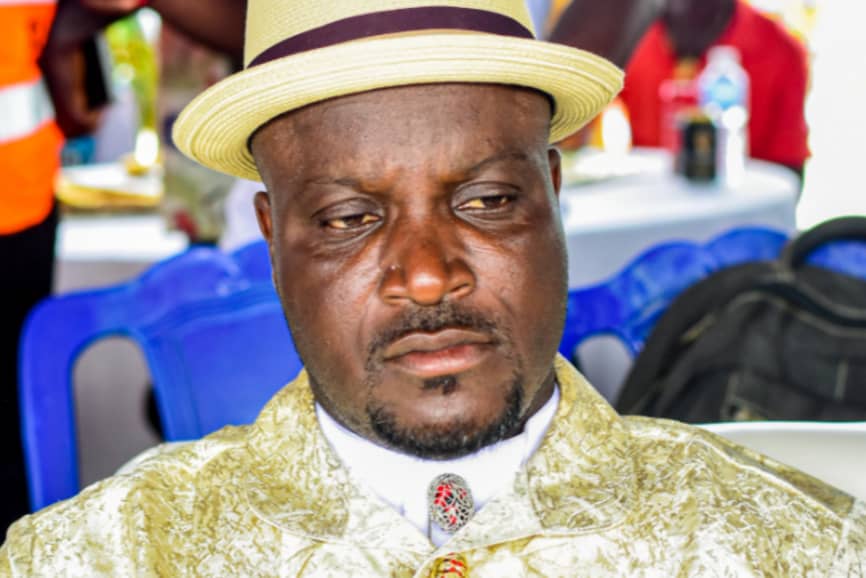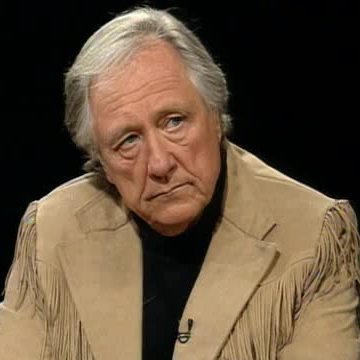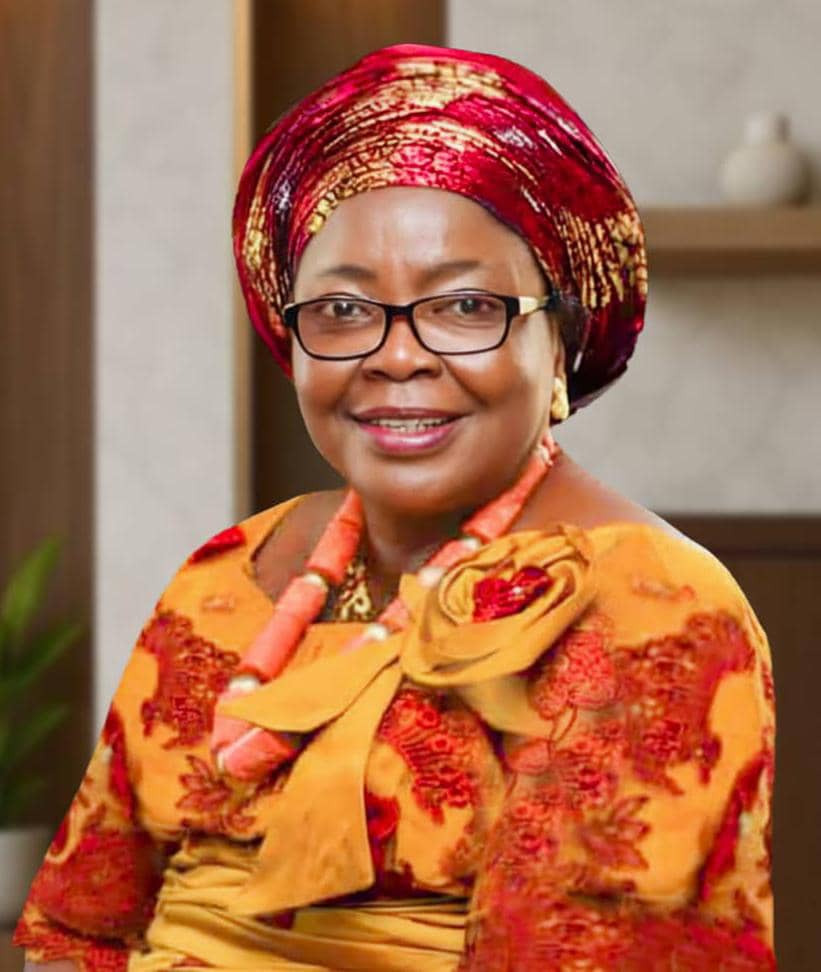GRACE ALELE-WILLIAMS: Nigerian Professor and Mathematician

Did you know that Grace Alele-Williams is the first Nigerian female vice-chancellor at the University of Benin and also the first Nigerian woman to receive a doctorate?
Grace Alele-Williams was born on the 16th of December 1932 in Warri, Delta State. She attended Government School, Warri; Queen's College, Lagos and the University College of Ibadan (now University of Ibadan, UI). She obtained a master's degree in mathematics while teaching at Queen's School, Ede in Osun State in 1957 and her PhD degree in mathematics education at the University of Chicago in the United States of America (USA) in 1963, thereby making her the first Nigerian woman to be awarded a doctorate.
She returned to Nigeria for a couple of years' postdoctoral work at the University of Ibadan before joining the University of Lagos (UNILAG) in 1965. Her teaching career started at Queen's School, Ede, Osun State, where she was a mathematics teacher from 1954 to 1957.
She left for the University of Vermont to become a graduate assistant and later assistant professor. From 1963 to 1965, Alele-Williams was a postdoctoral research fellow, department (and institute) of education, University of Ibadan from where she was appointed a professor of mathematics at the University of Lagos in 1976.
Her interest in mathematics education was originally sparked by her stay in the USA, which coincided with the Sputnik phenomenon. Working with the African Mathematics Program in Newton, Massachusetts, under the leadership of MIT professor Ted Martins, she participated in mathematics workshops held in various African cities from 1963 to 1975. Highlights included writing texts and correspondence courses covering basic concepts in mathematics, working in concert with leading mathematicians and educators.
She taught at the University of Lagos from 1965 to 1985, and spent a decade directing the institute of education, which introduced innovative non-degree programmes, with many of the certificate recipients older women working as elementary school teachers.
Alele-Williams was appointed the first female vice-chancellor of a Nigerian university in 1985, and she believes her appointment at the University of Benin, which ended in 1992, was a test case to demonstrate a woman's executive capability.
Among her honors are Fellow of the Mathematical Association of Nigeria, Fellow of the Nigerian Academy of Education, merit award winner of Bendel State in Nigeria, and regional vice-president for Africa of the Third World Organization for Women in Science. It may be added that professor Alele-Williams was chairman of the African Mathematical Union Commission for Women in Mathematics.
She has held and served in various capacities. By serving in various committees and boards, Alele-Williams had made useful contributions in the development of education in Nigeria. She was chairman of the curriculum review committee, former Bendel State 1973–1979. From 1979 to 1985, she served as chairman of the Lagos State curriculum review committee and Lagos State examinations boards.
Alele-Williams was a member of governing council, United Nations Educational, Scientific and Cultural Organization (UNESCO), Institute of Education. She is also a consultant to UNESCO and Institute of International Education Planning. For a decade (1963–73), she was a member of the African Mathematics Programme, located in Newton, Massachusetts, United States. She was also vice-president of the World Organisation for Early Childhood Education and later president of the Nigeria chapter. She was the first president of the African Mathematical Union Commission on Women in Mathematics
In 1974, Alele-Williams published a book titled Modern Mathematics Handbook for Teachers. After serving as the vice-chancellor of the University of Benin, she joined the board of directors of Chevron-Texaco Nigeria. She is also on the board of HIP asset management company limited, an asset management company in Lagos, Nigeria.
Alele-Williams was a force to reckon with in the dark period for Nigeria's higher education. Then, the activities of secret cults, confraternities and societies had spread within the Nigerian universities especially in University of Benin. She made valuable impacts, with combination of courage, ingenuity and strategy that the growing tide of cultism was stemmed in the university. A task which many men had failed, she was able to make notable contributions.
She has a special interest in women education. While spending a decade directing the institute of education, she introduced innovative non-degree programmes, allowing older women working as elementary school teachers to receive certificates. Alele-Williams has always demonstrated concern for the access of female African students to scientific and technological subjects..
Alele-Williams received many awards and honours. She received the Order of the Niger in 1987, and was elected a Fellow of the Mathematical Association of Nigeria and a Fellow of the Nigerian Academy of Education. She won a merit award of Bendel State in Nigeria, and served as regional vice-president for Africa of the Third World Organization for Women in Science and was chairman of the African Mathematical Union Commission for Women in Mathematics. On February 28, 2014, she received the centenary award.
Alele-Williams ublications include: Dynamics of Curriculum Change in Mathematics - Lagos State Modern Mathematics Project; Education of Women for National Development; Report: The Entebbe Mathematics Project; The Development of Modern Mathematics Curriculum in Africa; Education and Government in Northern Nigeria; Education and Status of Nigerian Women; Science, Technology and Mathematics (STM) Education for all, Including Women and Girls in African; Major Constraints to Women's Access to Higher Education in Africa; The Politics of Administering a Nigerian University; Numerical Methods for Initial Value Problems in Ordinary Differential Equations; The Political Dilemma of Popular Education: An African Case.
Books authored include: Presence Africaine. Revue Culturalle Do Monde Noir/ Cultural Review of the Negro World.
Alele-Williams married Babatunde Abraham Williams (b. 1932) December 1963, not long after returning to Nigeria from the United States. Williams was a political scientist who, at the time of their marriage, was a senior lecturer at the University of Ife, Osun State. As of 2017, Alele-Williams has five children and 10 grandchildren. She died on Friday, March 25, 2022 at the age of 89 years.
Source: Wikipedia
#penglobalbrandpersonality



